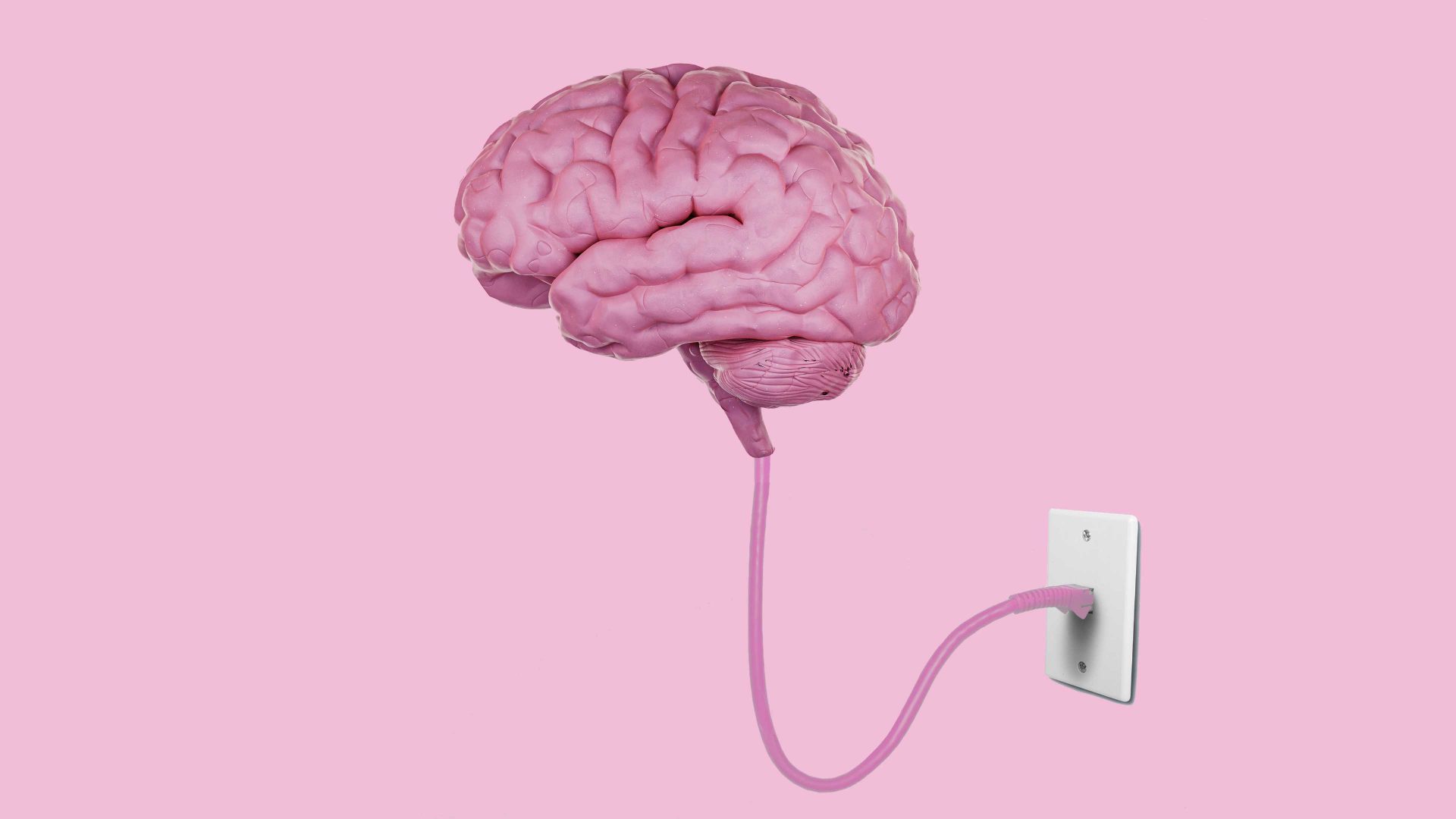On January 29, Elon Musk announced on Twitter/X that Neuralink had made a breakthrough. The company’s researchers have successfully implanted a microchip into a human brain. The device designed to record neural activity will allow a person to operate a computer using just their thoughts – they hope.
The chip has tiny threads which are so fine that no surgeon could attach them without the aid of robots. Once in place, the device detects spikes in specific neuronal electrical activity and this data can be recorded and analysed and used to communicate intentions to a computer. This effectively makes the computer an extension of the individual’s mind, and not just another tool. A seamless interface between biological humans and machines is now a realistic possibility.
Over 25 years ago, the philosophers Andy Clark and David Chalmers introduced the notion of the extended mind, the idea that devices or objects outside our skulls or bodies can literally be parts of our minds. In their initial example, someone with cognitive impairment used paper-written notes to help find his way to a museum. The notes served the same function as biological memories in the brain would have done for someone else, so, the philosophers argued, they could rightly be seen as part of his mind, part of his memory available for consultation.
The philosopher Ned Block later joked that the extended mind hypothesis was false when Clark and Chalmers first published on the topic but became true with the advent of the smartphone. We have outsourced memories for phone numbers and directions, and much else in these always-available devices. That’s why when someone steals your phone it feels like an assault, not just a theft: the thief has run off with part of your mind (unless it is fully backed up, of course).
Following Musk’s announcement, we’re going to have to learn a new acronym: BCI – Brain-Computer Interface. Things could move very quickly from now on and implant-extended minds could be the new smartphones, perhaps even within this decade. Neuralink is far from the first company to experiment in this area, but with the momentum that comes from the richest person on the planet backing you, expect swift developments. It’s not driverless cars that we should be worrying about, and perhaps not even ChatGPT, but BCIs – what they are, what they can and can’t do, who gets to have them, who controls them and what all this means about being human. Philosophers are going to have their work cut out to keep abreast of the new issues that implant technology raises; science-fiction writers are better placed.
Initially, BCIs are being touted as a medical breakthrough that will allow people with neurological deficits, caused for example by spinal cord injuries, to interact directly with computers and to operate equipment around them. This is a wonderful development. There is even talk of restoring sight – something that in the New Testament was considered a miracle.
But the company has even higher ambitions: it intends to unlock human potential, as they put it, not just to provide medical care. They want this technology in the home. No need to talk to the Siri of the future – just think the right thought and the machine will operate.
Don’t search for a calculator on your smartphone, just imagine a sum, and the answer will appear. We won’t need to remember directions with Google Maps or its equivalent permanently accessible to our minds. We won’t need to remember facts, or even faces, using our biological memories – all of that can be outsourced – except “outsourced” is probably the wrong word once humans have merged with computers. Something close to telepathy will be possible between those who have the right technology installed.
If all this works, we will have entered the cyborg era. Musk’s announcement could be as significant as Neil Armstrong’s “That’s one small step for man, one giant leap for mankind.” In the utopian vision this will allow us to do great things: we will have become superhuman and live happily ever after with enhanced capabilities that we can scarcely now imagine.
More accurately, those who can afford implants will have become superhuman. The rest will remain all too human, a huge cognitive underclass.
Yet there is a non-negligible chance that things may not work out so well for the implanted ones. A lot can go wrong with brain surgery. And there’s a significant risk that a disgruntled hacker might turn rich cyborgs into driverless humans as fitting punishment for their hubris and inevitable overpricing.



